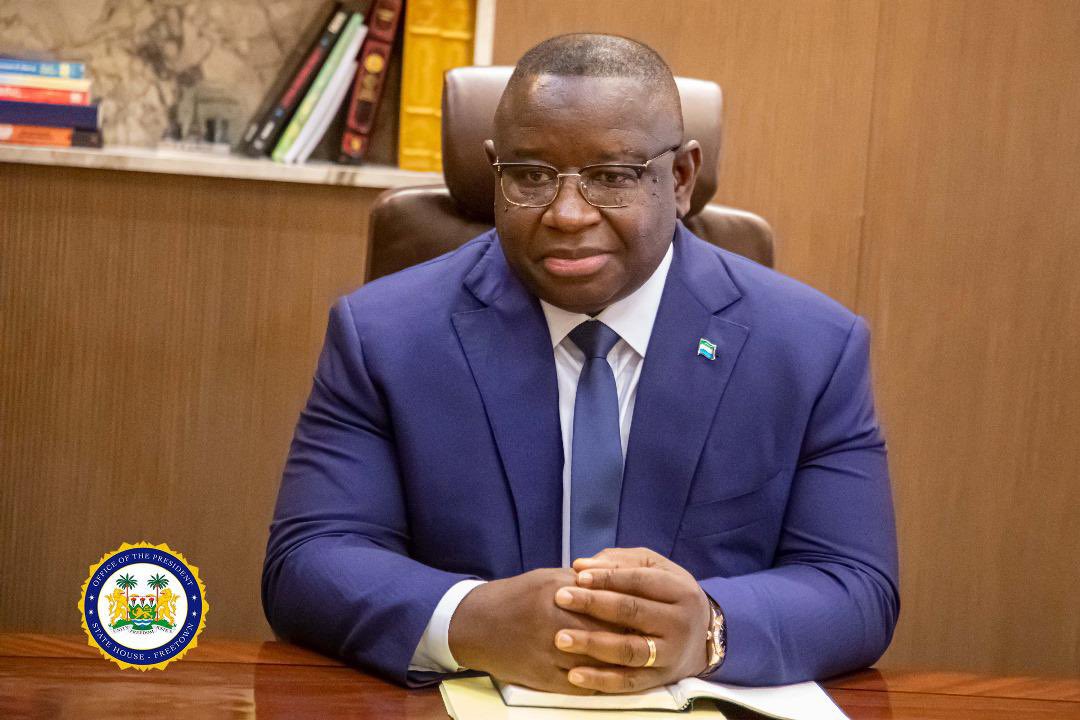Recent developments in Sierra Leone have sparked a renewed wave of optimism among its citizens. The country has secured significant financial support from international partners, promising an era of substantial improvements in energy, healthcare, and infrastructure. However, beneath this promising facade lies a complex web of questions and concerns that warrant serious scrutiny. As we delve deeper into the nature of these financial agreements and their implications, it becomes clear that Sierra Leone’s path to development is riddled with paradoxes and contradictions.
President Julius Maada Bio’s administration has successfully secured several high-profile deals, including a $480 million MCC Compact for energy sector improvement, a $136 million grant from the Global Fund, a $499 million electricity generation project, a $20 million ultra-modern hospital for children in Lumley, a memorandum of understanding with China for a modern fish harbor complex at Black Johnson, and $840 million mobilized for energy and agriculture. These deals, on the surface, suggest a bright future for Sierra Leone, with promises of enhanced infrastructure, healthcare, and energy access.
However, recent events have cast a shadow over this optimism. The announcement of a $412 million non-transparent electricity debt awarded to Milele Energy and TCQ Power Limited has raised numerous questions. This debt, financed by the United States International Development Finance Corporation (DFC), is intended to construct a power plant to double Sierra Leone’s energy access. Yet, the lack of transparency and clarity surrounding this deal has sparked concerns among Sierra Leoneans. Was there a competitive bidding process? What are the conditions of this debt? How did Milele Energy and TCQ Power Limited secure this project?
Adding to the complexity is the simultaneous announcement of a $480 million grant from the Millennium Challenge Corporation (MCC) for Sierra Leone’s energy sector. This juxtaposition of aid and debt from US agencies presents a bewildering scenario. How can the same country, and by extension the same populace, be both burdened with a colossal debt and promised substantial aid for the same sector? This irony begs the question: are these international agencies taking Sierra Leoneans for granted, assuming they will not scrutinize the details?
Sierra Leoneans are no longer willing to accept opaque deals and unanswered questions. The nation demands transparency and accountability in these financial engagements. It is crucial to understand the legal and financial basis of the $412 million debt and the processes through which it was imposed. The government, diplomats, and corporations must realize that efforts to obscure details and dodge scrutiny will not succeed. Sierra Leoneans are vigilant and demand clarity on how international funds are utilized for energy, agriculture, health, and more.
While these international deals unfold, the daily reality for many Sierra Leoneans remains harsh. The minimum wage stands at 800 Nle, the cost of staple food is unstable, and local food prices are soaring. Meanwhile, government officials frequently travel abroad, seemingly detached from the struggles of ordinary citizens. This disconnect underscores the urgent need for transparent governance and accountable leadership that prioritizes the well-being of the populace over political and corporate interests.
Sierra Leone’s journey towards development is at a critical juncture. The influx of international aid and the imposition of significant debts present both opportunities and challenges. As Sierra Leoneans, we must remain vigilant and demand transparency in all dealings that affect our nation’s future. The era of organized deception and opaque governance must end. We deserve answers to our questions, clarity on international financial engagements, and a commitment to lifting our country out of poverty. Only through collective vigilance and accountability can we ensure that Sierra Leone truly benefits from the opportunities at hand and moves towards a brighter, more equitable future.












I don’t think we need to worry that much. DFC promised $412M Private Sector investment. MCC is approving $480M grant over 5 years. All these are for the same project(s) in our country. Because both MCC and DFC are coming from the same America, could it be that both organisations have spoken over it before DFC committed itself to our country? If that’s the case, then we can buy off DFC over the same 5-year period as we are receiving the instalment grant from MCC. If they are both coming from different angles, then this is an added bonus to our country’s development. So this comes back to a win win situation for our country. That’s my take!
Go ahead
This DFC deal is not so clear. Who is the borrower and what are the terms of the loan? I wanted to believe this is a private loan made to Milele Energy and TCQ Power who are the owners of the project. The project itself cost $292M. The additional $120M goes toward (political) insurance. Why was the DFC eager to finance this project considering the political risk – no credit check/rating was done.. Further, it is hoped that Milele Enery and TCQ Power will be able to recoup this money over a period of 20 years (they have a 20 year power purchase agreement with EDSA). Considering operational costs, do we expect the electricity tariff to be higher or lower than that of Karpowership?